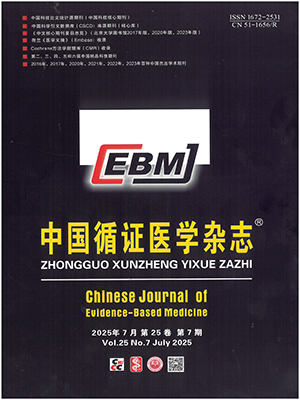| 1. |
Herxheimer A, Petrie KJ. Melatonin for the prevention and treatment of jet lag (Cochrane review). The Cochrane Database of Systematic Reviews 2002, Issue 2 Art. No.: CD001520. DOI: 10.1002/14651858.CD001520.
|
| 2. |
Aronson JK, Ferner RE. Clarification of terminology in drug safety. Drug Safety. 2005, in press.
|
| 3. |
Derry S, Kong Loke Y, Aronson JK. Incomplete evidence: the inadequacy of databases in tracing published adverse drug reactions in clinical trials. BMC Medical Research Methodology, 2001, 1: 7.
|
| 4. |
Derry S, Loke YK. Risk of gastrointestinal haemorrhage with long term use of aspirin: meta-analysis. BMJ, 2000, 321: 1183-1187.
|
| 5. |
Edwards IR, Aronson JK. Adverse drug reactions: definitions, diagnosis, and management. Lancet, 2000, 356: 1255-1259.
|
| 6. |
Edwards JE, McQuay HJ, Moore RA, et al. Reporting of adverse effects in clinical trials should be improved: lessons from acute postoperative pain. Journal of Pain and Symptom Management, 1999, 18: 427-437.
|
| 7. |
Eypasch E, Lefering R, Kum CK, et al. Probability of adverse events that have not yet occurred: a statistical reminder. BMJ, 1995, 311: 619-620.
|
| 8. |
Golder S, Duffy S, Glanville J, et al. Developing efficient search strategies to identify papers on adverse events. A: testing and precision sensitivity[abstract]. In: 12th Cochrane Colloquium 2004 Oct 2-6; Ottawa, Ontario, Canada: 75-6.
|
| 9. |
Golder S, Duffy S, Glanville J, et al. Developing efficient search strategies to identify papers on adverse events. B: using statistical analysis [abstract]. In: 12th Cochrane Colloquium 2004 Oct 2-6; Ottawa, Ontario, Canada: 75.
|
| 10. |
Ioannidis JP, Evans SJ, Gotzsche PC, et al. Better reporting of harms in randomized trials: an extension of the CONSORT statement. Annals of Internal Medicine, 2004, 141: 781-788.
|
| 11. |
Ioannidis JP, Lau J. Completeness of safety reporting in randomized trials: an evaluation of 7 medical areas. Journal of the American Medical Association, 2001, 285: 437-443.
|
| 12. |
Jefferson T, Demichel i V. Balancing benefits and harms in health care: observational data on harm are already included in systematic reviews. BMJ, 2003, 327: 750.
|
| 13. |
Loke YK, Derry S, Aronson JK. A comparison of three different sources of data in assessing the frequencies of adverse reactions to amiodarone. British Journal of Clinical Pharmacology, 2004, 57: 616-621.
|
| 14. |
Loke YK, Derry S. Reporting of adverse drug reactions in randomised controlled trials - a systematic survey. BMC Clinical Pharmacology, 2001, 1: 3.
|
| 15. |
McIntosh HM, Woolacott NF, Bagnall AM. Assessing harmful effects in systematic reviews. BMC Medical Research Methodology, 2004, 4: 19.
|
| 16. |
MacLehose H, Klaes D, Garner P. Amodiaquine: a systematic review of adverse events. Version 1, March 2003. WHO. Available at: http://www.who.int/medicines/oranization/par/edl/expcom13/expcom03add.shtml.
|
| 17. |
Medawar C, Herxheimer A. A comparison of adverse drug reaction reports from professionals and users, relating to risk of dependence and suicidal behaviour with paroxetine. International Journal of Risk and Safety in Medicine, 2003, 16: 5-19.
|
| 18. |
Olsen H, Klemetsrud T, Stokke HP, et al. Adverse drug reactions in current antihypertensive therapy: A general practice survey of 2586 patients in Norway. Blood Pressure, 1999, 8: 94-101.
|
| 19. |
Wald NJ, Morris JK. Teleoanalysis: Combining data from different types of study. BMJ, 2003, 327: 616-618.
|
| 20. |
Zanchetti A, Hansson L. Risk of major gastrointestinal bleeding with aspirin. Lancet, 1999, 353: 148-150.
|




